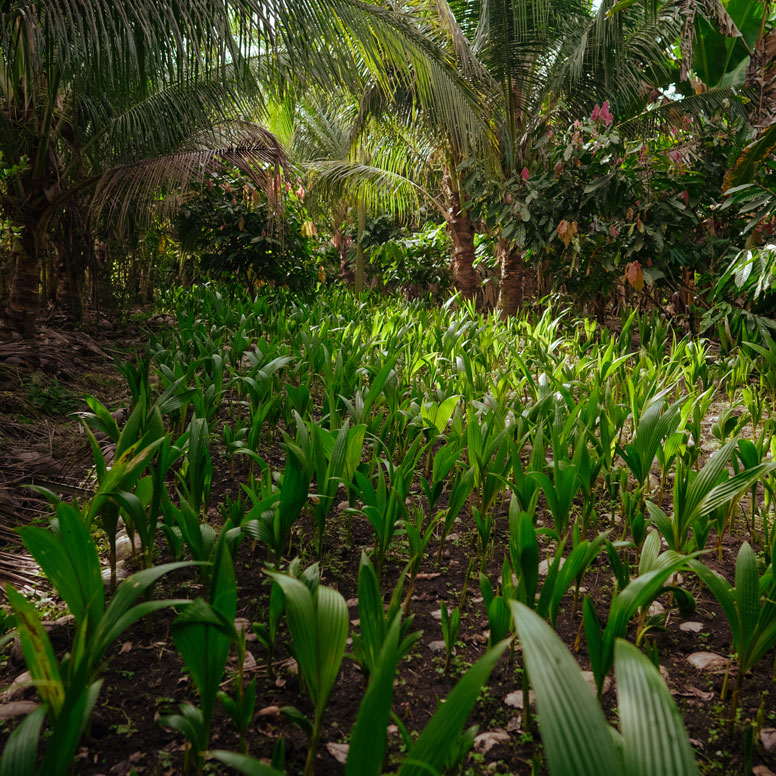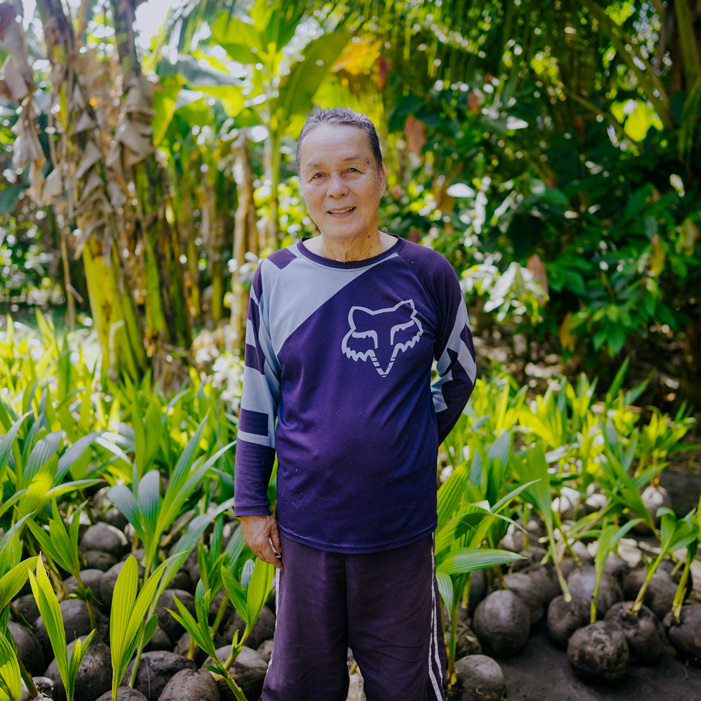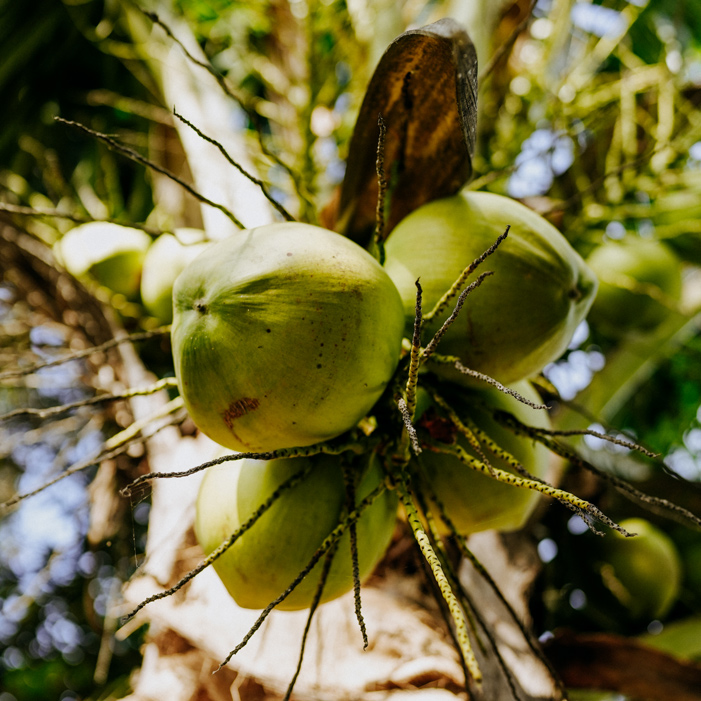Protecting Natural Resources
At The Vita Coco Company, we believe that protecting natural resources is integral to promoting sustainable ecosystems and resilient communities. We have begun implementing responsible and sustainable practices throughout our operations and supply chain to help protect natural resources, and we will continue to refine and improve these practices. One of our key focuses is regenerative agriculture. By helping educate farmers in implementing regenerative farming techniques, they can improve soil health, sequester carbon, and promote biodiversity.
Our coconut-based products are derived from nature, which makes it even more crucial for us to conserve and replenish the resources we extract from the planet. As a business, we are focused on the impact of our environmental footprint at each point of our value chain. We have identified the key environmental opportunities to protect our natural resources, including:
- Supporting sustainable and regenerative agricultural practices,
- Reducing energy consumption and our climate footprint,
- Conserving and replenishing the water we use in our operations process, and
- Creating responsible packaging while reducing waste.
As an organization, we invest in measuring our carbon impact and product lifecycle, optimizing energy consumption in our operations, and promoting circularity in sourcing, production, and disposal.
Regenerative Agriculture
At The Vita Coco Company, we understand the importance of the principles of regenerative agriculture in restoring and revitalizing our natural ecosystems. Our approach to regenerative agriculture includes our growers, who are fundamental to our business, and we strive to support their communities at the same time.
In collaboration with our suppliers, non-profit partners, and growers, we have supported suppliers’ and farmers’ efforts to replant aging trees and enhance the overall biodiversity of the local ecosystem that we source from, while also empowering farmers and their economic livelihood.
Learn more about other ways we support suppliers and farmers
A view from above trees in the Philippines, many of which are coconut trees. The Philippines is home to many of our primary coconut growing communities.
Tall coconut tree varieties are more resilient to weather-related events related to climate change but take longer to bear fruits than dwarf varieties.
Coconut husks can be used as conservation buffers, helping retain water, control erosion, and provide nutrient enrichment.

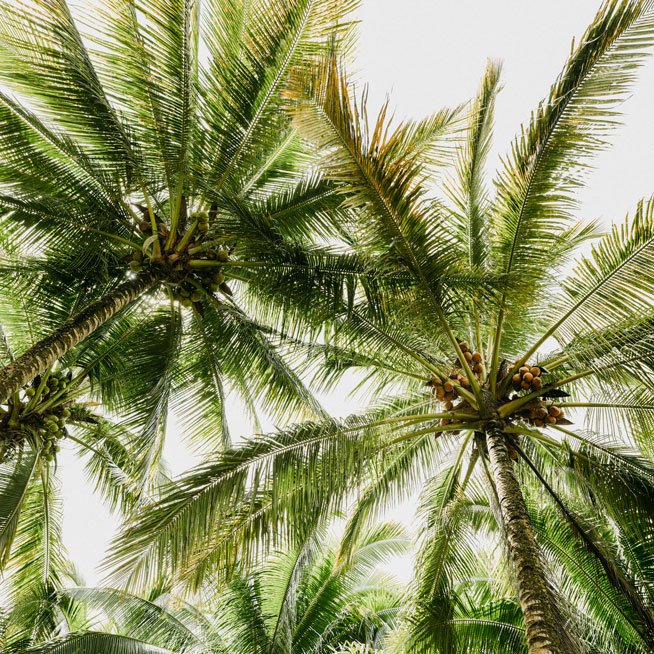
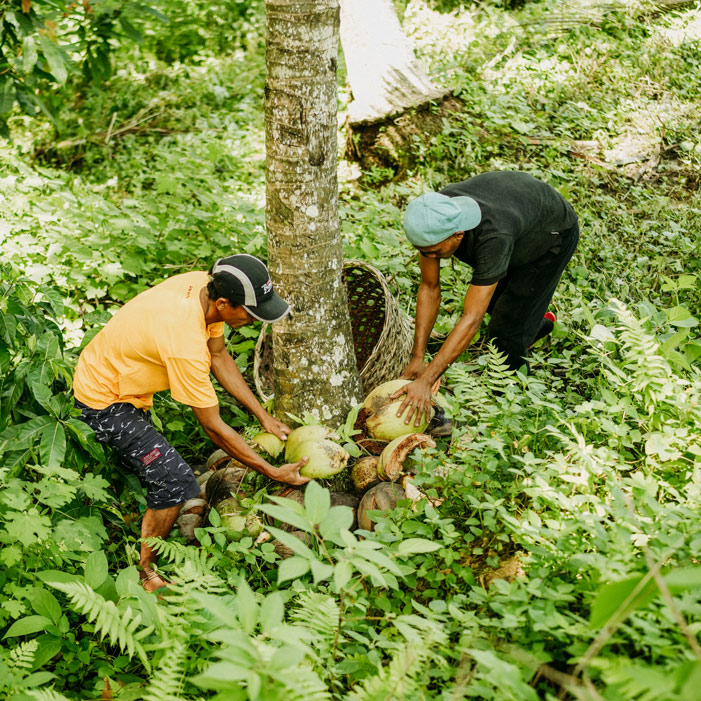
Energy & Climate
Making better-for-you products can be resource intensive, which is why we are continuously looking for opportunities to reduce our own impact. One area we focus on improving is energy efficiency across our value chain and incorporating more renewable energy into our operations. We also aim to invest in decarbonizing and sequestration practices, working collaboratively with our partners to optimize their operational processes.
For example, some of our partner manufacturing facilities use coconut shells to power boilers, which generate steam from biomass energy. This reduces their reliance on other fuel sources, including fossil fuels, that may have a higher carbon footprint.
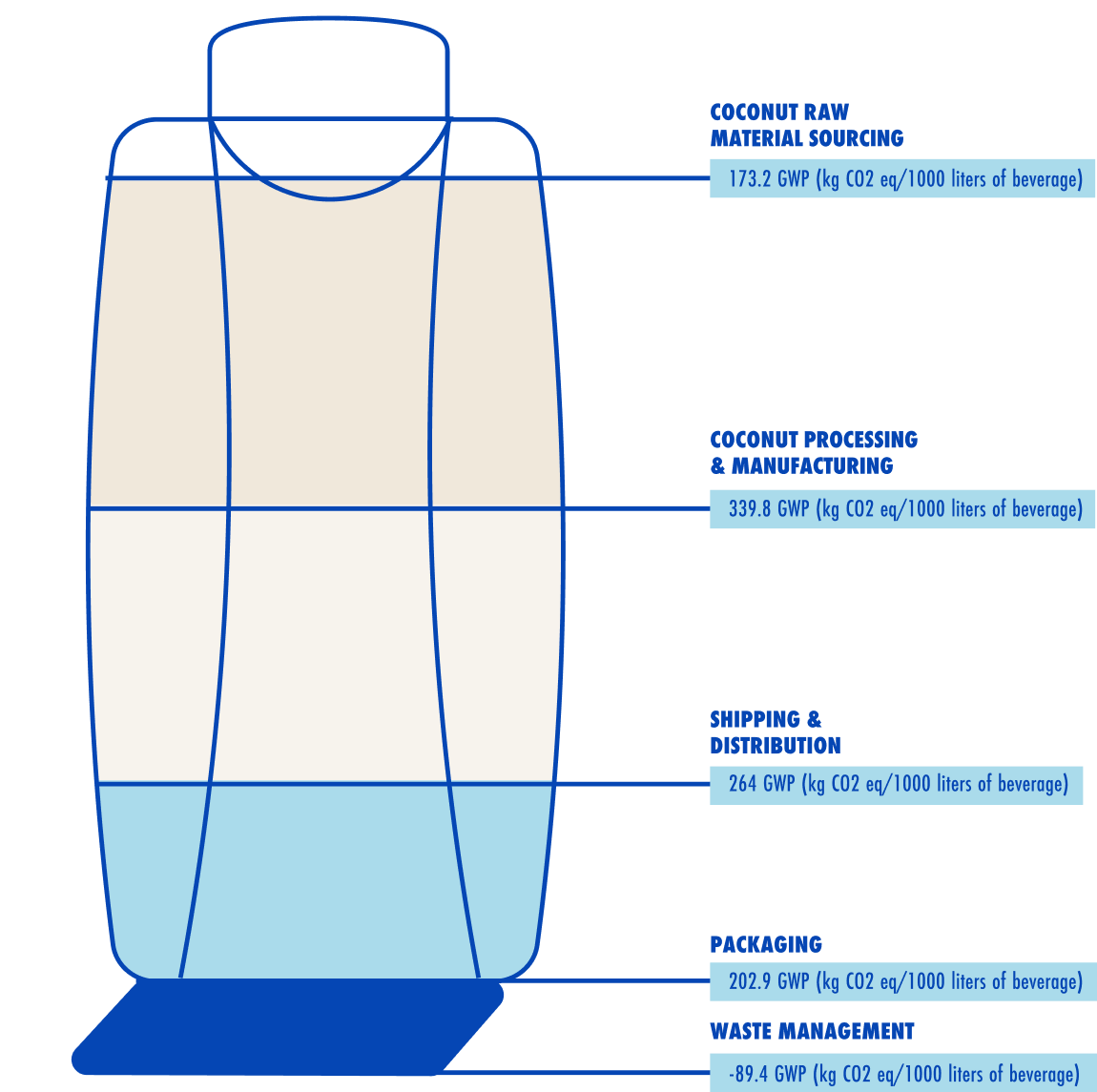
*Data based on Vita Coco 500ml Tetra Pak® products in the U.S.
We completed a Carbon Footprint of Products (“CFP”) analysis of our value chain in 2022. Through this exercise, we tracked and measured the impact of greenhouse gas emissions from our business across our product portfolio, from the sourcing of raw materials to the production, distribution, and disposal of products.
The goal of this analysis was to identify opportunities to reduce the company's overall environmental impact, enhance our approach to creating better-for-you products, and make incremental progress towards our environmental ambitions. By doing so, we aim to manage our own footprint while contributing to global efforts to help combat climate change.
The results of the CFP show that the largest share of global warming potential (GWP) from our business is from the processing, shipping, and packaging of coconut water. GWP is a measure used to assess and compare the impact of different greenhouse gases on global warming over a specific period compared to carbon dioxide—in other words, our carbon footprint. Within the shipping process, these findings highlight the importance of addressing our transportation practices, which play a fundamental role in our supply chain. As shipping and distribution are a large part of our footprint, our ambition is to reduce our greenhouse gas emissions throughout our logistics network. We strive to have efficient transport through route planning, leveraging intermodal transportation, deliberate inventory placement in our warehouse network, demand and supply planning, and optimizing load capacity in our trucks and ocean freight.
As more of our consumers hydrate with deliveries to their doorsteps, we also recognize the environmental impact of these deliveries can potentially increase. To further reduce our environmental impact from transportation, we launched carbon neutral shipping for all orders on our e-commerce direct-to-consumer platform for our Vita Coco and PWR LIFT brands. We also offer an add-on for customers to match our contribution.
Water Stewardship
We understand the importance of water sources, particularly in sourcing regions, and how their limited availability requires conservation.
With our non-profit partner, the Silvermill Foundation, we helped establish a water conservation program to train farmers on responsible water use. These sessions take place at demonstration plots, where farmers learn water-efficient methods to reduce their water usage, such as digging trenches and applying fertigation. Farmers also learn to use coconut husks to retain water in the soil, reducing the need for frequent crop watering. Additionally, these husks serve as fertilizer, providing soil nutrients for vegetation and reducing emissions.
As our company continues to evolve, our ambition is to continue proactively monitoring and managing water use across our operations.
Responsible Packaging & Circularity
We strive to build a circular, waste free business to reduce our environmental footprint and preserve our natural resources by reimagining, reducing, reusing, and recycling materials in our responsible packaging design.
To that end, the packaging we strive for maintains product safety and integrity while lowering waste and our overall packaging footprint.
We have developed a five-pillar framework to define our responsible packaging principles in progressive stages: rethink, reduce, reuse, recycle, and respect. These principles guide us in each stage of our packaging design process and influence our packaging choices. This approach ensures that how we source and how our packaging is disposed of is done in a responsible manner.
Framework & Principles
Throughout the lifestyle of our products, packaging should consider these 5 principles:
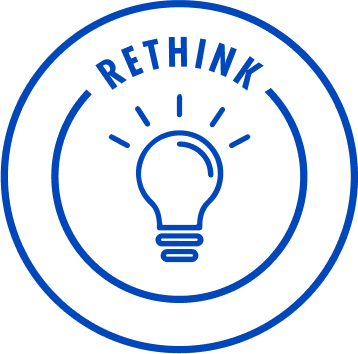
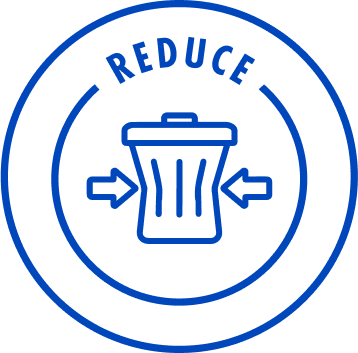
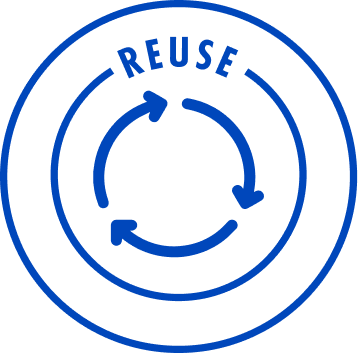


Within this framework, we highlight packaging attributes that represent the specific elements we modify during the design process to actualize our principles. We focus on the following packaging attributes:
- Responsibly Sourced & Certified Materials
- Recycled Content in Product Packaging
- Recyclable & Reusable Materials
- Lightweighted Product Packaging
- Educational Labeling On-Pack for Recycling
We also aim to promote circularity in our coconut supply chain through close collaboration with our suppliers and partners in farming communities to use every part of the coconut. As a result, they have implemented innovative practices that help minimize waste and maximize resource efficiency, such as using the coconut husks on the farm to retain soil moisture and to fuel boilers at multiple manufacturing facilities. Together with suppliers and farming communities, we strive to create a closed-loop system that contributes to a more resource-efficient future.

